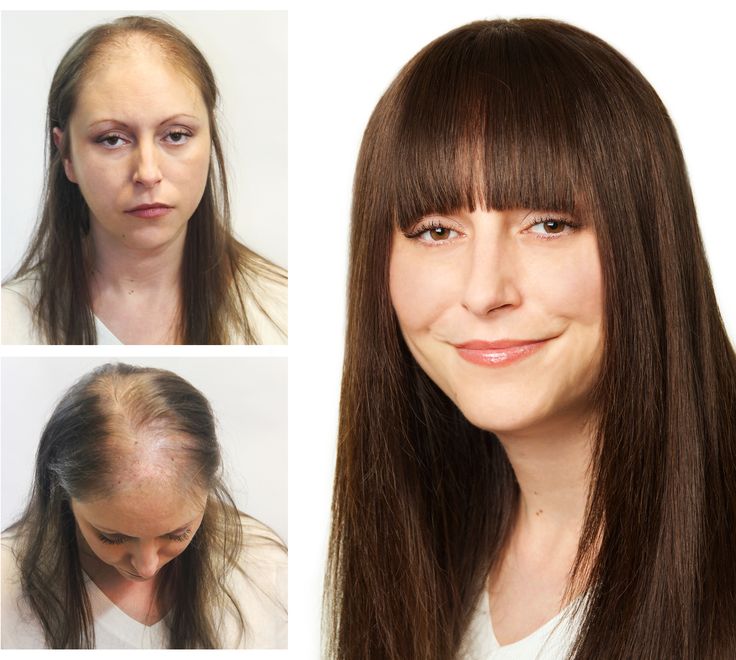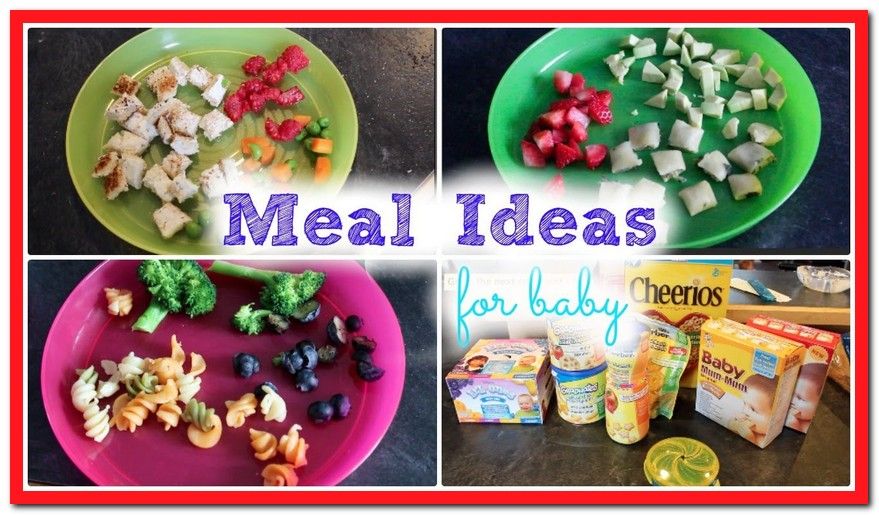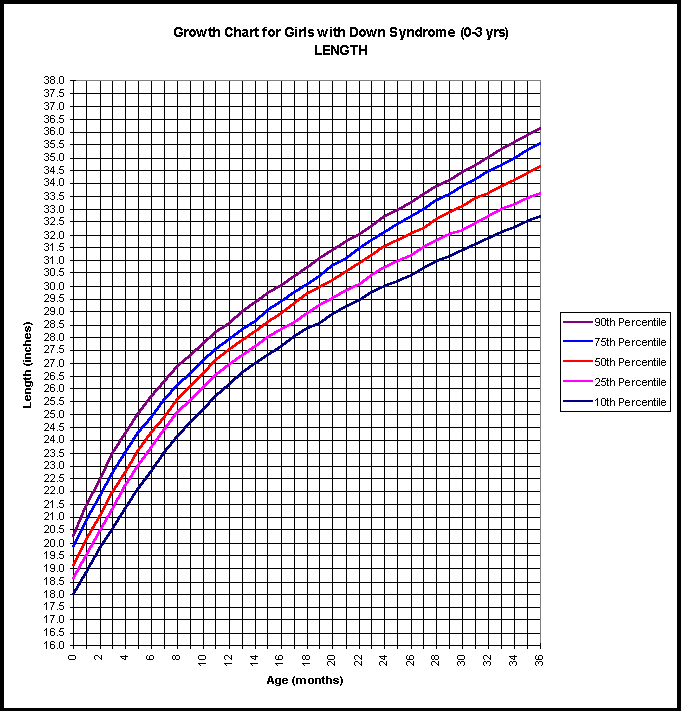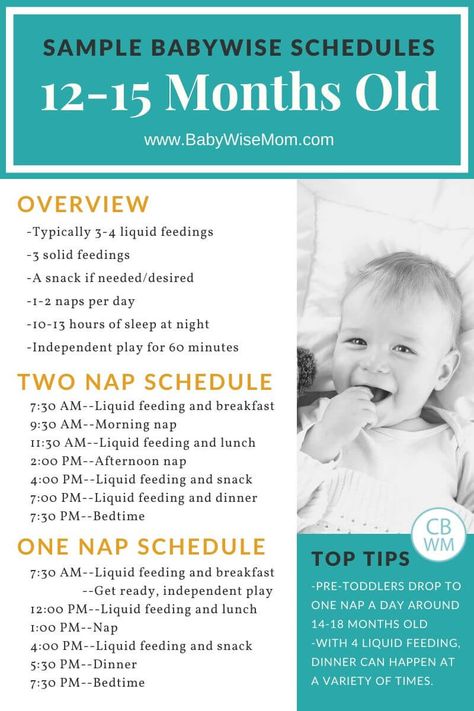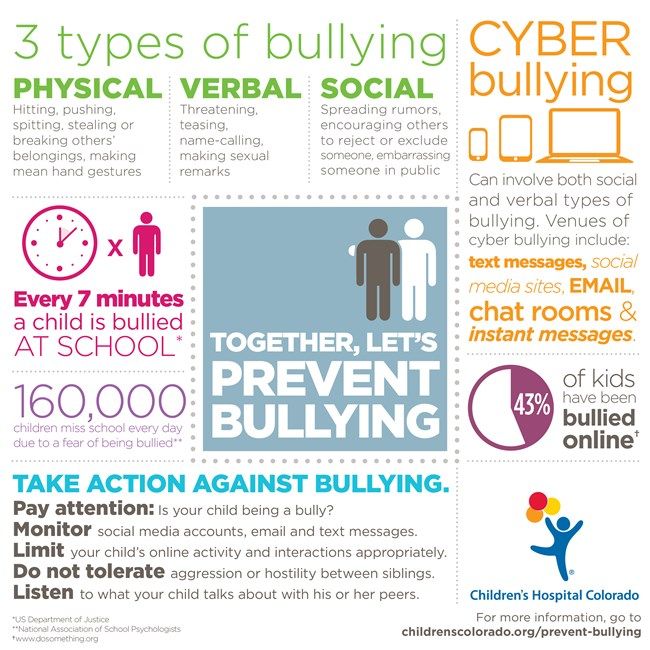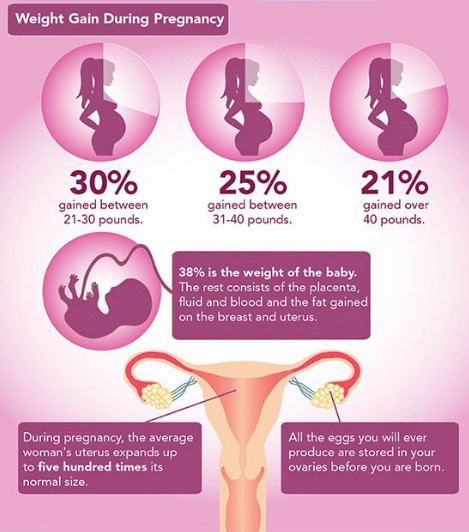Prenatal hair growth before and after
Is It True That You Should Take Prenatal Vitamins for Hair Growth?
Shavonne Morrison, MS, RD, LD, addresses questions related to pregnancy, prenatal vitamins, and hair growth.
If you’re on a mission to grow thicker, longer hair, or have experienced some hair loss, you might have heard of a variety of solutions, including prenatal vitamins. But wait, do prenatal vitamins make your hair grow? Before you take prenatal vitamins for hair growth, there are a few things you should consider before supplementing with prenatals—especially if you aren’t pregnant or trying to conceive.
First, if you fall into that category of pregnant or planning to be pregnant, we’ll talk about the changes in hair growth during pregnancy. Then, we’ll take a look at what science has to say about taking prenatal vitamins for hair growth. Regardless of whether you’re pregnant or not, the nutrients in prenatal vitamins, from folic acid to vitamin D, are essential to your health—and your hair.
How Pregnancy Changes Your Hair
Pregnancy is a time of exponential growth and development for the baby. To facilitate this, the mother’s body undergoes many hormonal changes. These changes—combined with increased blood volume and circulation—could be the reason for healthier-looking, longer hair.
The main hormone at work here is estrogen. Estrogen prolongs the growth phase of hair during pregnancy. For many, this means less hair loss and breakage, resulting in healthy, shiny hair.
On the flip side, many women experience postpartum hair loss. Once estrogen levels begin to return to normal, hair is more likely to fall out at a higher rate.
Do Prenatal Vitamins Help with Hair Growth?
Hair seems to grow naturally during pregnancy. So do prenatal vitamins also make your hair grow while pregnant? Although there’s a correlation between prenatal vitamin consumption and hair growth during pregnancy, that doesn’t necessarily mean that prenatals cause hair growth.
However, a 2018 study found that women may experience thicker nails during pregnancy. Interestingly, there was no difference in the growth rate of nails—only nail thickness. This indicates that since pregnancy hormones impact nail thickness, they may similarly impact hair thickness.
Overall, research doesn’t support the idea that prenatals will help your hair grow. However, a diet rich in vitamins A, C, D, E, B vitamins, iron, and zinc very well could!
Best Vitamins in Prenatals for Hair, Skin + Nails
While some may be tempted to take a prenatal for hair benefits, you can also get key vitamins and minerals from a high-quality multivitamin or through food.
Here are the top beauty-boosting nutrients to look out for.
Vitamin A
Healthy, moisturized skin—as well as a nurtured scalp—requires vitamin A. It facilitates the proper production of sebum, the oil your body naturally produces.
Vitamin C
A powerful antioxidant, vitamin C can neutralize free radicals (molecules that can cause oxidative stress in the body and impair hair growth) without becoming unstable itself.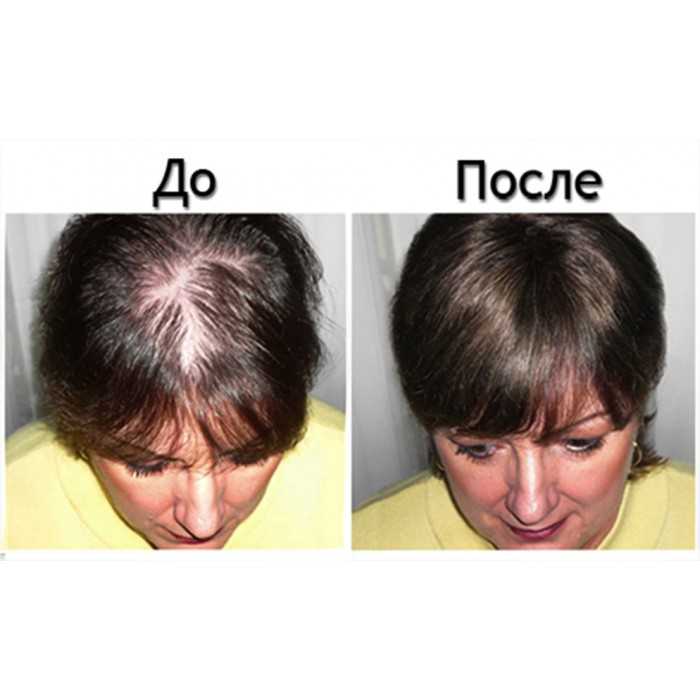 It also increases the absorption of iron, which is necessary for hair growth.
It also increases the absorption of iron, which is necessary for hair growth.
Vitamin D
The role of vitamin D for hair growth/loss isn’t conclusive. But according to a 2019 study, there may be a substantial link between having enough vitamin D and avoiding hair loss.
Vitamin E
Also an antioxidant, vitamin E has similar effects on the body to vitamin C in terms of reducing oxidative stress and promoting hair growth. Vitamin E is known to improve skin’s smoothness and help maintain its moisture. This includes the skin on your scalp—and a major component of having healthy hair is maintaining a healthy scalp.
B Vitamins
B vitamins—specifically biotin (vitamin B7)—are involved in the health of your hair, skin, and nails. In particular, some studies link biotin deficiency to hair loss. In particular, a 2017 study found that 38 percent of study participants reporting hair loss had a biotin deficiency.
Iron
This mineral is important for carrying oxygen to every cell in the body. Iron deficiency symptoms include weak/brittle nails, paleness/pallor, and hair loss.
Iron deficiency symptoms include weak/brittle nails, paleness/pallor, and hair loss.
Zinc
Lastly, zinc deficiency is commonly associated with hair loss in people of all genders. A zinc supplement might be necessary in some cases.
Folic AcidAlso known as vitamin B9, or the most available form of the vitamin, folate, folic acid is one of the essential vitamins in prenatal vitamins. It’s recommended in both pre-conception and all throughout pregnancy in order to prevent birth defects. Some studies have suggested that it can also potentially be used to treat hair loss, according to a 2019 review, but the research is still inconclusive.
CalciumYou can also find calcium in prenatal vitamins, which is key to both fetal bone development and maternal bone health. When it comes to hair health, calcium is also a crucial mineral to avoid hair loss, particularly during the perimenopause period, a 2016 study reports.
Can you take a prenatal if you aren’t pregnant?
Will prenatal vitamins help with hair loss, even if you aren’t pregnant? Hold on before you take that supplement. If you’re not pregnant, there are a few things to consider before taking a prenatal vitamin for hair growth.
If you’re not pregnant, there are a few things to consider before taking a prenatal vitamin for hair growth.
The main concern with taking a prenatal when you aren’t pregnant (or planning to be) is iron toxicity. Nonpregnant women need 18 milligrams of iron per day, compared to pregnant women who need 27 milligrams.
Taking too much iron daily over a long period of time can lead to symptoms such as:
- stomach pain
- constipation
- liver complications
However, some prenatals don’t contain any iron at all. (Many brands exclude iron since needs during preconception and pregnancy are unique.) In short, your best bet is to investigate the label thoroughly if you decide you want to take a prenatal.
Calcium is another nutrient of concern when taking a prenatal outside of pregnancy. In the long run, getting more calcium than your body requires could contribute to kidney issues. (However, drinking lots of water and taking your supplement with a meal may mitigate this risk.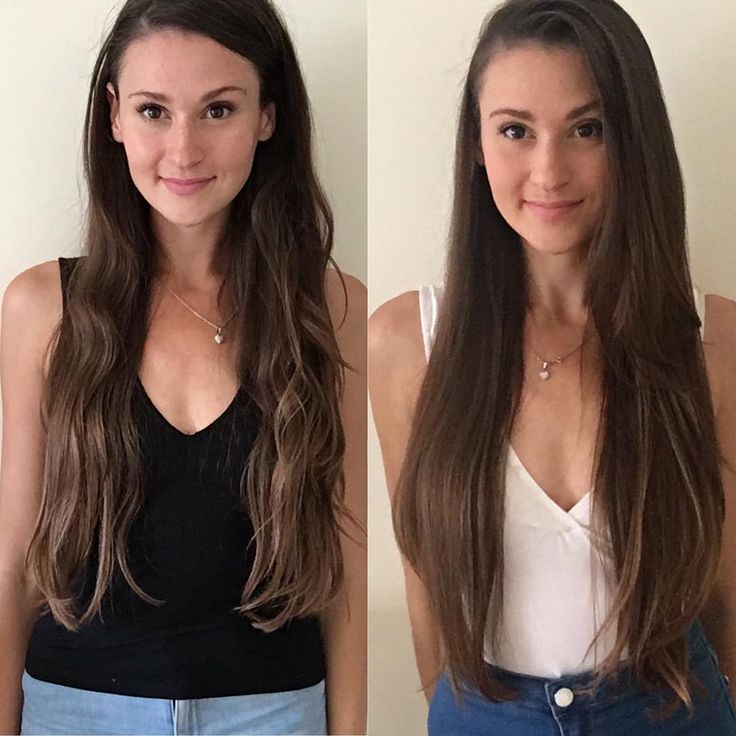 )
)
Folic acid is a similar case; though it’s an integral nutrient to conception and pregnancy, it’s not advised to take much more than the upper limit, which is about 1,000 milligrams a day for adults (the recommended daily intake for pregnancy is 600 milligrams and 400 milligrams for all other adults). Some studies imply that taking well over the daily upper limit of folate could increase the risk for certain cancers. As long as you’re not taking double or triple the recommended amount, it shouldn’t have major detrimental effects on your health. That said, you’ll generally require a bit less folic acid outside of pregnancy, and a prenatal vitamin might not be necessary if you’re not pregnant.
Foods That Help Hair Growth
A diet that promotes healthy skin, hair, and nails will include fruits, vegetables, and healthy fats while limiting processed foods. In other words, a healthy diet equals healthier hair.
The following foods are high in the vitamins and minerals necessary for hair growth and strength.
1. Eggs are a great source of vitamins A and D. They also contain biotin. Egg yolks in particular are rich in hair-growing vitamins. In patients with trouble growing hair, biotin can improve their ability to maintain growth.
2. Citrus fruits such as oranges and grapefruits are full of vitamin C. They also contain vitamin A. Many fruit juices are also high in vitamin C.
3. Sweet potatoes are rich in vitamin A. One baked sweet potato has over 150 percent of your daily vitamin A needs.
4. Nuts and seeds—such as almonds, pumpkin seeds, chia seeds, flax seeds, walnuts, cashews—are full of essential vitamins, minerals, and healthy fats including vitamin E and zinc, that help strengthen your hair and promote growth.
5. Lentils and white beans are good sources of iron and zinc. These minerals are important for maintaining color, strength, and elasticity in hair.
6. Whole-grain foods are often fortified with B vitamins.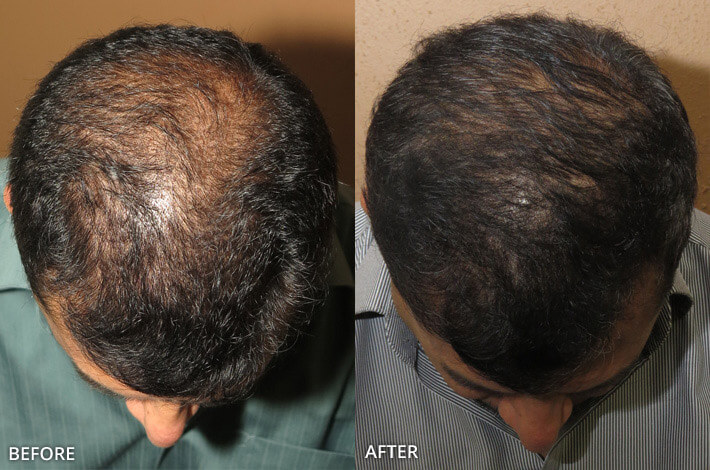 Choosing whole-grain bread and cereals over conventionally processed ones means you get even more of their nutrients!
Choosing whole-grain bread and cereals over conventionally processed ones means you get even more of their nutrients!
Alternative Supplements for Hair Growth
If the idea of changing your diet overwhelms you, you may prefer to take a multivitamin instead of prenatal vitamins for hair growth.
Multivitamins can help fill in gaps in your diet while providing key vitamins and minerals for hair growth. A multivitamin is also a good option if you don’t want to worry about the risks of getting too much of any vitamin or mineral, such as iron.
You can also take supplements specifically formulated for hair growth.
For instance, HUM’s Hair Sweet Hair gummies have B vitamins, zinc, and herbs like fo-ti that are proven to help you grow longer, stronger hair. Since they’re especially beneficial for your hair, a hair growth supplement might be your best option to avoid exceeding your nutritional needs.
Final Thoughts
Prenatals are formulated for women who are pregnant or trying to become pregnant.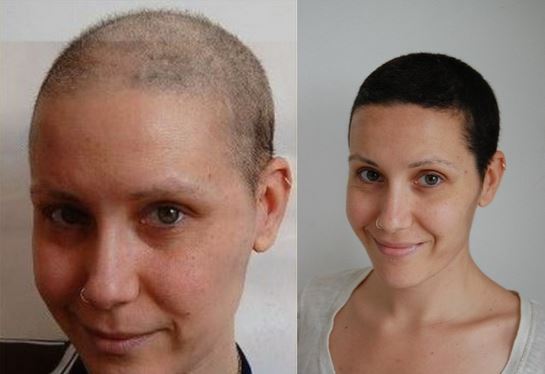 While they certainly include vitamins and minerals necessary for healthy hair, you may be better off taking a multivitamin or hair growth supplement to reach your goals.*
While they certainly include vitamins and minerals necessary for healthy hair, you may be better off taking a multivitamin or hair growth supplement to reach your goals.*
Taking high amounts of certain nutrients unnecessarily can cause undesired side effects and even mask other issues. Ultimately, only you and your doctor can determine if it’s safe for you to take a prenatal for hair growth.
Better yet, upgrade your diet to benefit hair growth and overall health alike.
*Note: Since many pregnancies are unplanned, it’s not unwise to consider taking a prenatal if there’s a potential that you’ll get pregnant. Getting adequate amounts of folate, choline, DHA, and other nutrients in these supplements is crucial for optimal maternal and infant health.
Many women don’t have adequate amounts of these vitamins before pregnancy. Of note, they’re highly important in the early stages of pregnancy, even before many women even realize they’re pregnant.
Do Prenatal Vitamins Make Hair Grow?
There’s no denying the pregnancy glow of a mom-to-be—even her tresses look thicker and more luminous. Perhaps you yourself experienced fuller, longer hair during pregnancy.
Perhaps you yourself experienced fuller, longer hair during pregnancy.
What’s the secret behind this lustrous pregnancy-related hair growth? Some swear by their prenatal vitamins—prompting women everywhere to flock to their nearest supplement aisle. But is it all hype? Could it just be hormones? Keep reading as we take a closer look at hair growth during pregnancy, the role prenatal vitamins play and if the benefits make it worth adding them to your hair-care routine, even if you’re not expecting.
How Your Hair Changes During Pregnancy
A woman’s body is constantly growing and changing throughout her pregnancy—even her hair can undergo a noticeable transformation. Many women claim their hair during pregnancy is the fullest, thickest and shiniest it has ever been—swearing by their prenatal vitamins for their longer hair and lustrous shine. Even their nails have never looked better!
Turns out, the changes to your tresses are less a perk of your prenatal vitamins and more so a side effect of the miracle of life.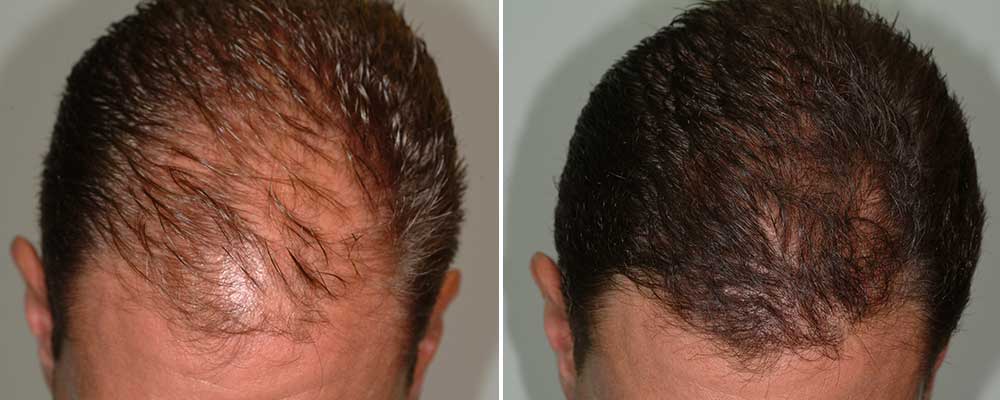 Let us explain: During pregnancy, estrogen increases—higher estrogen levels boost blood flow which helps nourish the baby—causing hair to stay in the growth phase longer, resulting in less hair loss and breakage. Progesterone levels also rise, giving way to increased sebum.
Let us explain: During pregnancy, estrogen increases—higher estrogen levels boost blood flow which helps nourish the baby—causing hair to stay in the growth phase longer, resulting in less hair loss and breakage. Progesterone levels also rise, giving way to increased sebum.
Between the increased blood flow (also good for stimulating hair growth) and a prolonged growth phase and more scalp oils—all genetically determined—it’s no wonder women are singing the praises of their prenatal vitamins. The catch: There is little scientific evidence to suggest that they actually help your hair grow faster.
Do Prenatal Vitamins Help Hair Growth?
Even though we now know what’s really driving the thicker, fuller hair growth women experience during pregnancy, is it fair to completely rule out the role of prenatal vitamins in their new supermodel-esque strands? After all, prenatal vitamins are packed with essential vitamins and minerals that are critical to a baby’s healthy development—that’s got to mean something, right?
Truth be told, the excitement around prenatal vitamins being the secret to helping hair grow faster is tied to the fact that some of the vitamins and minerals in prenatal vitamins just happen to be key nutrients required for healthy hair, namely B vitamins like biotin and folic acid, the latter which is responsible for healthy cell growth, something our hair, skin and nails count on.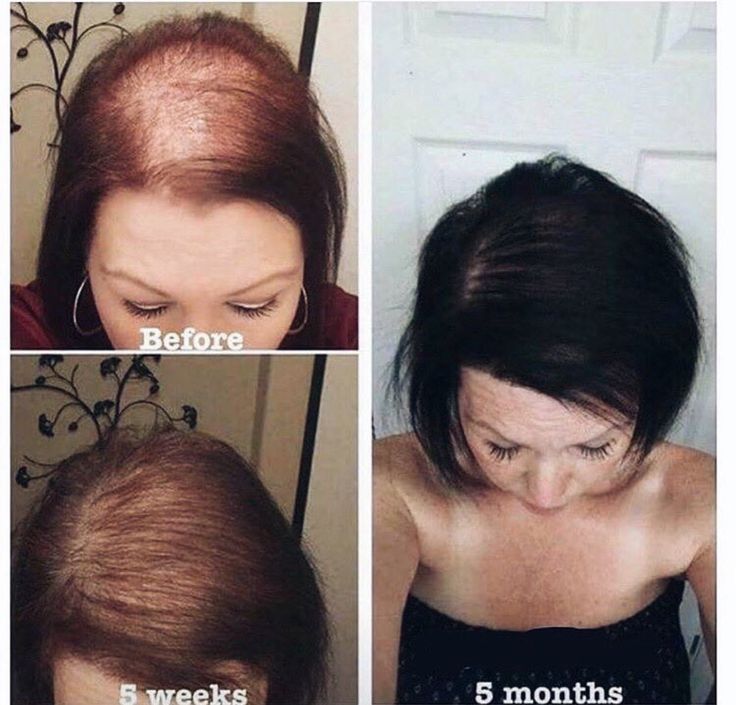 And with pregnant women as walking billboards for bombshell hair, it’s no wonder that women who aren’t pregnant are heading to the supplement aisle to address their hair loss concerns.
And with pregnant women as walking billboards for bombshell hair, it’s no wonder that women who aren’t pregnant are heading to the supplement aisle to address their hair loss concerns.
Is It Safe to Take Prenatal Vitamins for Hair Growth?
The primary problem with women taking prenatal vitamins for hair growth when they aren’t pregnant is that, unlike women who are growing a baby and who will benefit from the additional nutritional support, our bodies don’t actually need the higher amounts of certain vitamins and minerals that prenatal vitamins provide.
And in some instances, like in the case of iron, prenatal vitamins could do more harm than good and even lead to toxicity if they are consumed in excess—this risk extends to pregnant women, too. Taking too much iron for too long a period, especially over the age of 50, can result in side effects such as stomach pain, nausea and liver complications. Keep in mind, however, that not all prenatal vitamins contain iron, so always read the labels and consult your doctor before making any changes to your diet or adding any new supplements.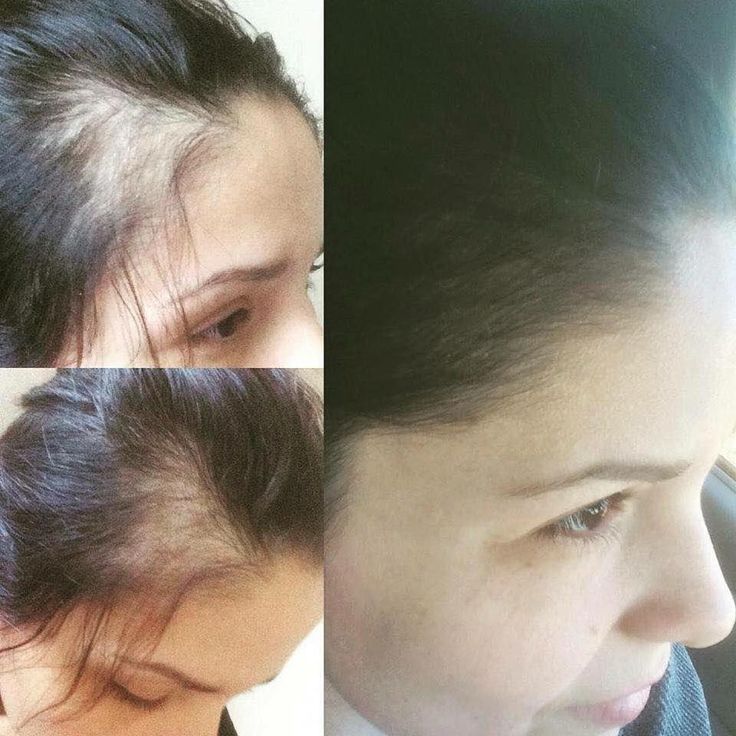
The fact of the matter is that most women who aren’t pregnant are able to get sufficient levels of the nutrients they need through a healthy and well-balanced diet. And a regular multivitamin is more than capable of filling any food gaps in your diet for your hair health and beyond.
Foods with Hair-Friendly Vitamins and Minerals
As we mentioned, eating a healthy, well-balanced and colorful diet is the best way to ensure your body is receiving all the vitamins and nutrients it needs to support not only your hair health but your overall health, too. Foods that promote healthy hair, skin and nails include fruits, vegetables, proteins and healthy fats that are packed with nutrients including vitamins A, B, C, D and E as well as such as calcium, iron, folic acid and zinc.
We love dark leafy greens such as spinach and Brussels sprouts for their folic acid, while eggs are a terrific source of vitamins A and D as well as biotin. Nuts and seeds provide healthy fats that strengthen hair strands and promote hair growth while whole grains ensure you’re getting your B vitamins.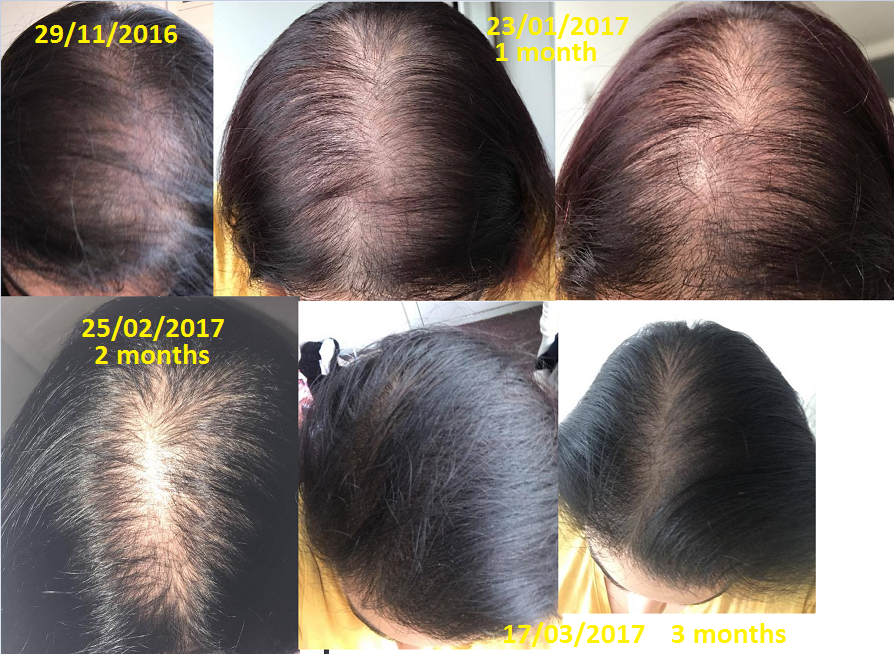
It’s important to keep in mind, however, that as we age, our body’s ability to effectively absorb nutrients does decrease, so you may want to consult your doctor to find out if a regular multivitamin is a good plan of action for your dietary needs.
Better Not Younger’s Supplements for Healthy Hair, Skin and Nails
If the beauty-boosting benefits of a prenatal vitamin have you intrigued, but you’re not sure prenatals are the best route for you, consider supplements designed specifically for your hair health. Better Not Younger has supplement options that offer an impressive lineup of hair- and skin-friendly nutrients including biotin, folic acid and antioxidant-rich vitamins. Suitable for vegetarians and all hair types, our Significant Other Hair, Skin & Nails Supplement + Retinol Boost brightens skin, strengthens roots and adds shine while ensuring you’re getting all your essential daily vitamins and minerals. Plus, we supercharged it with double the vitamin A to boost your body’s retinol production for more even-looking skin—the perfect complement to strong, shiny hair.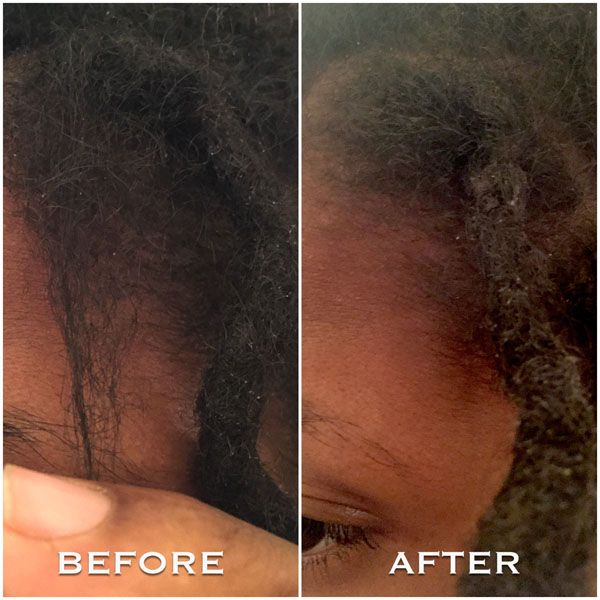
Another supplement option for healthier hair, skin and nails is our Power Within Skin & Scalp Collagen Gummies. Packed with marine collagen types I and III, these tropical-fruit-flavored gummies boost collagen levels for optimal hair, skin and scalp elasticity and hydration for healthier and more vibrant-looking hair.
Tell Us: Are you taking a supplement for your hair growth? Share in the comments below!
Like what you read and want more hair-care content delivered directly to your inbox? Sign up to receive our weekly newsletters for the latest hair intel and exclusive promotions for your aging hair needs!
Better Not Younger covers all your supplement needs to help your hair look thicker, healthier and more radiant. Our Significant Other and Power Within gummies are the perfect dietary supplements to help women boost their inner health as well as the health of their hair and scalp.
Photos about hair before and after
As a result of our long work, we constantly come to good results.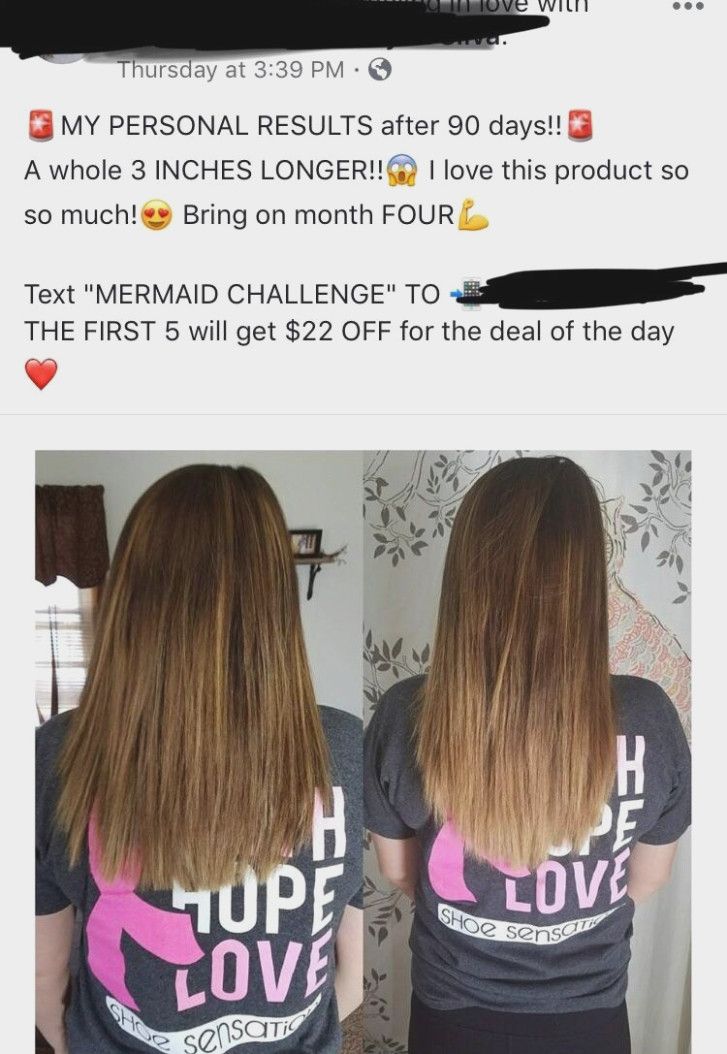
In some cases, we were able to photograph the successful results, so we can share it with you. The photos show how new hair growth is activated thanks to the advice of Juuste Akadeemia.
We are very happy and full of optimism, as the "photo bank" with excellent results is replenished and feedback from patients is full of kind and warm words. nine0003
It's always nice to see how the academy's treatments and tips help new healthy hair grow and after a while you can see the "hedgehog".
Areato alopecia before and after
Zonal baldness in men, the goal was to activate the growth of new hair on the temples, the result was obtained using serum for BTB13 hair and Juuste Akadeemia advice.
A scalp problem that has plagued me for years. The skin was in order thanks to the advice and procedures for 3 months. Alopecia. New hair growth was activated after 2 months. Read Matthias' story here..
Alopecia. New hair growth was activated after 2 months. Read Matthias' story here..
9The so-called genetic problem can be solved.
9002 We have seen that in the case of alopecia areata, with targeted work, it is possible to restore hair growth. The first photo was taken in November 2012 and the second in October 2013.
Healthy strong hair begins to grow.
In place of alopecia areata, hair began to grow evenly and the pigment returned.
Alopecia areata before and after.
As a result of our long-term work, we constantly come to good results. nine0003
In some cases, we were able to photograph successful results, so we can share this with you. The photos show how new hair growth is activated thanks to the advice of Juuste Akadeemia.
We are very happy and full of optimism, as the "photo bank" with excellent results is replenished and feedback from patients is full of kind and warm words.
It's always nice to see how the academy's procedures and advice help the growth of new healthy hair and after a while you can see the "hedgehog". nine0003
Areato alopecia before and after
Zonal baldness in men, the goal was to activate the growth of new hair on the temples, the result was obtained using serum for BTB13 hair and Juuste Akadeemia advice.
Forgive the problem of scalp. The skin was in order thanks to the advice and procedures for 3 months. nineAlopecia areata
New hair growth was activated after 2 months. Read Matthias' story here.
I wish to register for an appointment
Hair loss after childbirth is normal
Enroll
01 August 2017
Candidate of Medical Sciences, dermatovenerologist GMS Clinic Vladimir Vavilov, spoke in his article about hair loss after childbirth.
Hair loss after childbirth is a natural process, which is based on complex hormonal changes that occur in a woman's body.
Hair growth is subject to a certain cyclicity: hair grows on average for 3-5 years, after which rest comes and is replaced by newly growing ones. There can be about 35 such cycles during a lifetime (in the event that nothing happens to the follicle). Most of the hair on the head is in the growth phase, with each individual hair entering the active growth phase asynchronously. Due to this mechanism, a constant density of hair on the head is ensured. nine0003
During pregnancy, a woman's body is filled with estrogen, which has a stimulating effect on the follicles, while balancing their cycles. Many hairs are in the growth phase at the same time. The change in hormonal levels has a stressful effect on the hair: the levels of estrogen and a number of other hormones fall after childbirth, returning to almost normal levels after 24 hours, many follicles are at rest. Considering that the shedding phase lasts an average of 3 months, hair loss may begin approximately 3 months after delivery. This process can take up to 8 months. At the same time, a woman loses no more hair than she could have lost over the past 9-and months. The loss seems massive due to the simultaneous diffuse loss of a large amount of hair.
Considering that the shedding phase lasts an average of 3 months, hair loss may begin approximately 3 months after delivery. This process can take up to 8 months. At the same time, a woman loses no more hair than she could have lost over the past 9-and months. The loss seems massive due to the simultaneous diffuse loss of a large amount of hair.
Normalization of the prolapse process takes time and, unfortunately, is limited in terms of therapeutic approaches. None of the growth stimulants has been studied for the safety profile during lactation. However, there are a number of rules that should be followed by nursing:
- Get tested for iron, vitamin D, zinc, vitamins B6 and B12. Be sure to take vitamin and mineral complexes prescribed by a gynecologist. nine0250
- Eat well. Hair needs an adequate amount of protein and micronutrients, being protein structures.
- Wash your hair regularly. Excess sebum is toxic to the hair and potentiates hair loss.
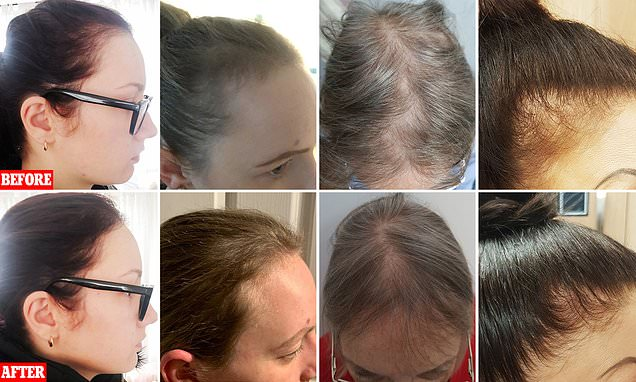 The hardships of motherhood are no excuse for bad washing. Washing itself does not increase the loss, you only wash off the hair that has already fallen out.
The hardships of motherhood are no excuse for bad washing. Washing itself does not increase the loss, you only wash off the hair that has already fallen out. - Do not wear hairstyles with increased tension in the forehead area, this can lead to additional hair loss. nine0250
- Laser combs may be an option for postpartum stimulation.
Dermatovenereologist Dermatologist Oncologist
Related Articles
Castor oil: composition, application, doctor's opinion
Text not fully provided. You can read the entire article on RBC Style. Castor oil has many benefits. It is used in its pure form, added to lotions and moisturizers, and even taken orally. Together with the doctor, we understand how it is useful and how it works. nine0003 Read article
Are vitamins A and E good for the skin?
Vitamins A and E - the legends of the Soviet first-aid kit.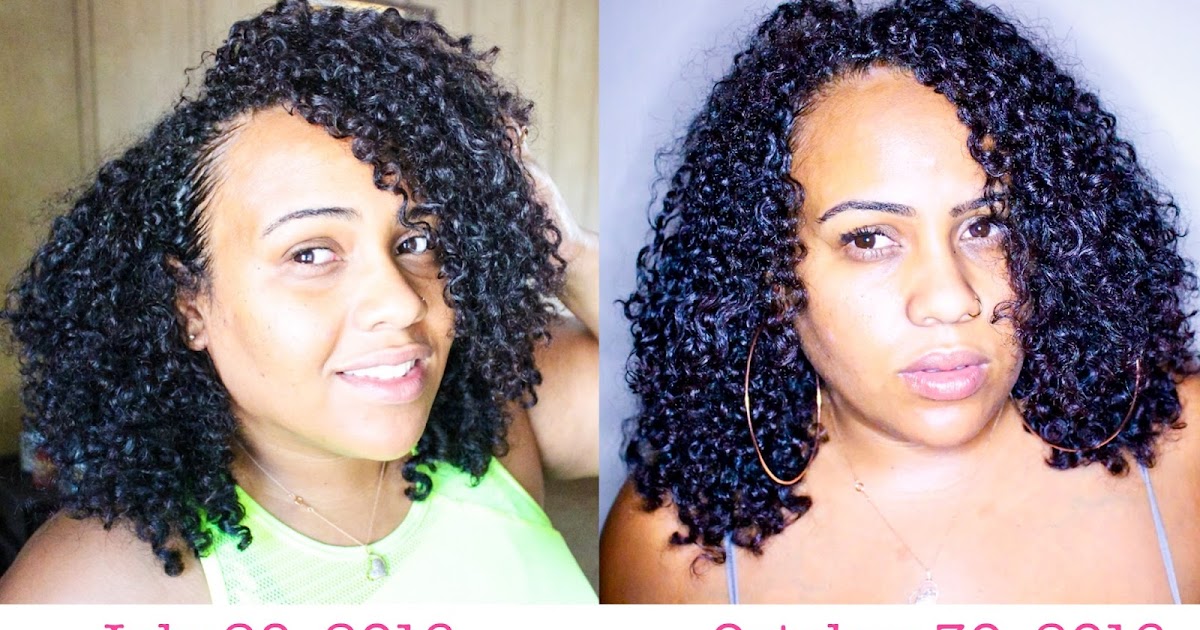 Many believe that they treat acne, improve metabolism in skin cells and protect against wrinkles. Some of this is true, but it's not as rosy as it is described on dietary supplement sites. We understand how vitamins A and E actually affect the skin and the body as a whole.
Many believe that they treat acne, improve metabolism in skin cells and protect against wrinkles. Some of this is true, but it's not as rosy as it is described on dietary supplement sites. We understand how vitamins A and E actually affect the skin and the body as a whole.
What is hyperkeratosis and how to get rid of "goose bumps"
"Goose bumps" are popularly called red or pink dots on the skin of the shoulders, arms or thighs, inside which short hairs curled up. We asked Natalya Kotova, dermatovenereologist at GMS Clinic, to explain why goosebumps develop and how to deal with this problem.
Read article
Experts told what risks tattoo lovers face
Scientists at Southern Methodist University have stated that tattoos have a negative effect on the thermoregulation of the skin. Is this true and can tattoos cause health problems?
Read article
What can you “bring” from the gym?
In training, a person comes into contact with the surfaces of equipment or floor coverings, and in contact sports with other people.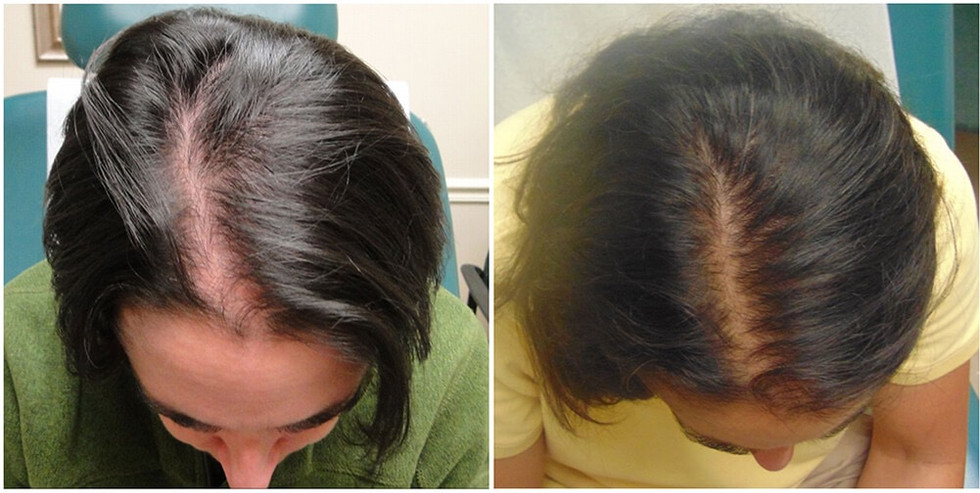 The risk of infection is higher than in public transport, at work or school. We tell you what dangers lie in wait in gyms and how to avoid them. nine0003 Read article
The risk of infection is higher than in public transport, at work or school. We tell you what dangers lie in wait in gyms and how to avoid them. nine0003 Read article
Children's cosmetics and mother's products: when is it possible?
More and more decorative products for children appear in the beauty industry. We tell you whether a child can use adult cosmetics, at what age they are allowed to paint and how to choose the right products.
Read articleOther articles by this author
Why hair falls out and what to do about it? nine0269
According to studies, at least 40% of women and 50% of men under the age of 50 experience excessive hair loss. In Moscow, the problem is progressing: trichological clinics have noted a multiple increase in visits in recent years, and the average age of patients is decreasing.
Read article
Hair falls out: why it happens, what to do, tips from a trichologist
Autumn is the perfect time to finally take care of your hair.